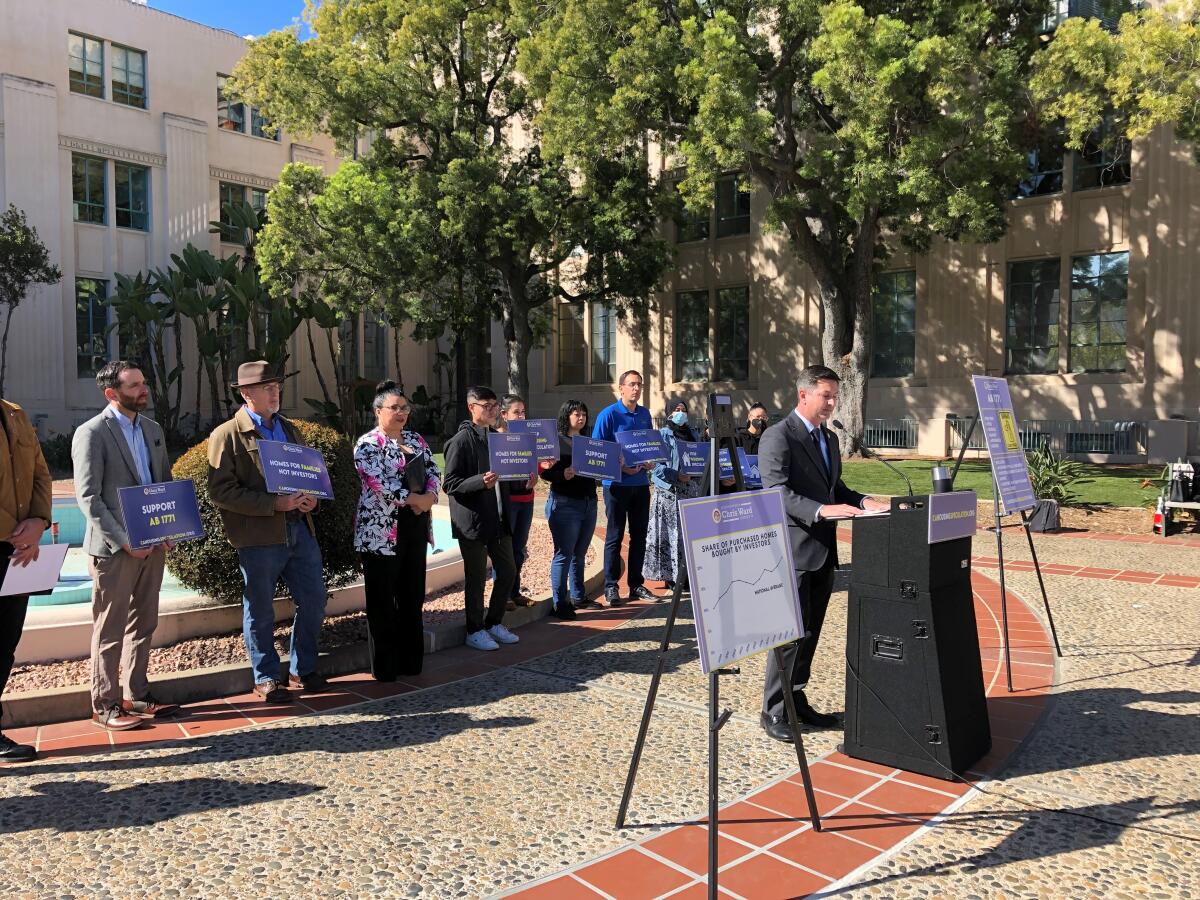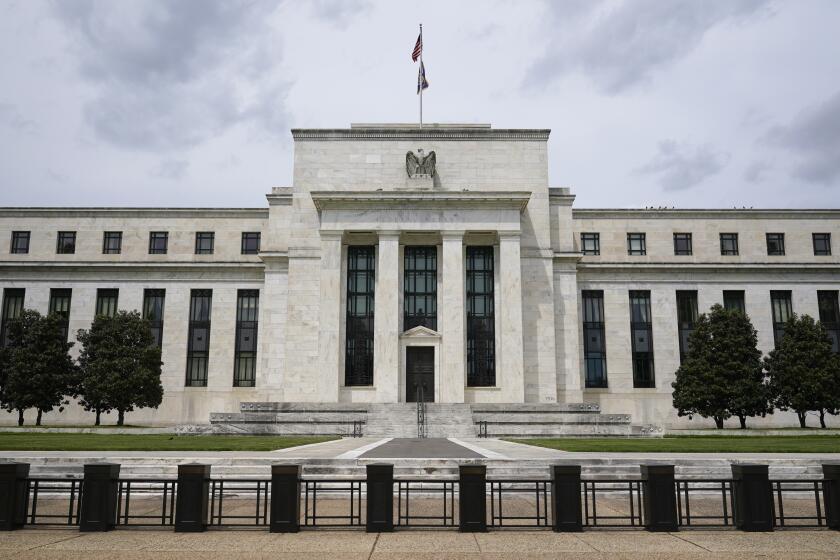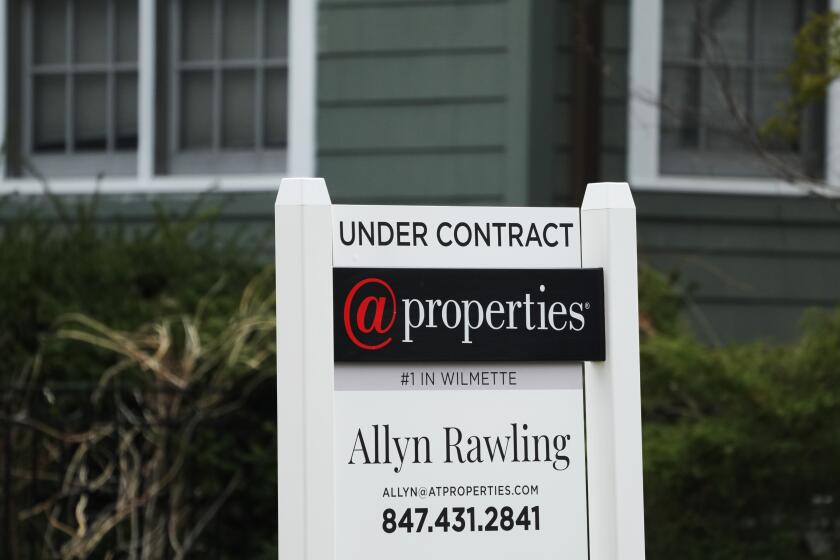Is CA legislation aimed at heavily taxing house flippers and short-term owners a good idea?

House flippers could be taxed 25 percent of their profit under the California Speculation Act.
A new bill introduced in California seeks to heavily tax home investors, or flippers, in an attempt to open up housing to more residents.
The California Speculation Act, from Assemblyman Chris Ward (D-San Diego), would impose a 25 percent tax on the profits from a home resold within three years after it is purchased. Additional taxes are imposed, on a sliding scale, for seven years.
This story is for subscribers
We offer subscribers exclusive access to our best journalism.
Thank you for your support.
Institutional investors in San Diego County made up 7.9 percent of sales in the third quarter of 2021, said Attom Data Solutions. That is lower than many parts of the nation. In Atlanta and Phoenix, investors made up 19.5 percent of sales during that same period.
Critics, such as the local Building Industry Association, say the effort does little to address what they see as the real problem: too few homes being built.
Other criticisms include the potential for hurting home sellers and making life difficult for people who get new jobs in another area and need to sell homes. Proponents of the bill say even if housing production is increased, investors will likely still be a problem for first-time buyers.
Q: Is the California Speculation Act a good idea?
Phil Blair, Manpower
YES: The concept is interesting and, as usual, the devil is in the details. It seems the American dream of homeownership has become a version of the stock market. What are you willing to pay for a stock and how long are you willing to hold it? Capital gains taxes are a driving factor. Lots of parallels with flipping homes. Should the dream of homeownership be kept alive (less all cash demands) and keep homes from being a commodity by keeping corporations out of the market? Sudden profits should be taxed higher than long-term investments.
Gary London, London Moeder Advisors
NO: Look for unintended consequences: this bill is likely to penalize moderate price homeowners. It is their homes that are mostly targeted by speculators. Rampant speculation is the symptom, not the cause, of rising housing prices. The cause is a shortage. Here are two suggestions that would work better: open freeway-corridor green fields for large scale, master plan development; and press our state legislature to force CEQA reform, the primary culprit in our inability to produce more housing.
Alan Gin, University of San Diego
YES: Housing availability and affordability continues to be a major problem in San Diego. While institutional investors are a small part of the market, anything that adds demand to the market puts increased pressure on housing prices. The California Speculation Act will reduce some of that pressure by reducing the returns from short-term speculation. There are enough exceptions in the act to deal with cases such as people having to move for employment reasons that adverse impacts will be ameliorated.
Bob Rauch, R.A. Rauch & Associates
NO: There are so many reasons a person may desire to sell their home in the first three to seven years. It would be unconscionable to tax people 25 percent on their profits. Those who are fortunate enough to be able to afford a home in San Diego should be able to enjoy any potential profits from a home sale in the future. What if they sell at a loss? Who is going to share in the loss?
James Hamilton, UC San Diego
NO: Rising house prices are caused by supply and demand, not investors. An investor is just an intermediary between people who want to sell and people who want to buy. Excess demand is driving up the price of many other goods besides housing. The way to address the problem is to increase the supply of available housing. This proposal is just one more tax that will fall on people who for other reasons simply had to move.
Austin Neudecker, Weave Growth
YES: Housing shortages and affordability are (related) serious issues. The way to alter behavior that exacerbates the problem is through financial incentives. While the specifics of this proposal are too harsh (e.g. seven years is long), taxing “flippers” who invest in aesthetics and minimal improvements to maximize profit drive up prices and contribute to the shortage of contractors to build new homes. Generally, expand the incentives for primary homeownership and reduce the benefits of investment.
Chris Van Gorder, Scripps Health
NO: As a large employer, Scripps has difficulty recruiting and retaining staff due to the cost of living. Rather than add another tax on the housing market, we should cut taxes and lower the cost of building affordable homes. We already have the highest fuel costs due to taxes and fees, and we are among the highest income taxes. California is chasing employers and employees out of the state and needs a holistic approach to address that, not another tax.
Norm Miller, University of San Diego
NO: Anti-flipper Single Family Bill 1771 by Chris Ward is one more example of market interference that helps one side of the market, but hurts another. The only long-term solution is one that the educated public understands: speed up approvals for housing, reduce legal costs for entitlement and fees, and allow for more density by increasing maximum heights. Since these seem unlikely, housing costs will continue to rise, especially as our economy is thriving with life science and biotech.
Jamie Moraga, IntelliSolutions
NO: This is a supply and demand issue. AB 1771 could infringe on the property rights of homeowners and create other unintended consequences, including further supply reduction. If our state and local officials want to make an impact to increase supply then look at CEQA reform, relax zoning, reduce development and regulation red tape, and create incentives (carrot versus stick approach). Californians already pay some of the highest taxes in the nation — imposing another tax is not a solution.
David Ely, San Diego State University
NO: The proposal does not foster the construction of more homes in San Diego. Taxing profits for up to seven years after the purchase risks harming homeowners who must move to take another job, have a growing household, need to sell because of a change in financial circumstances, or want to upgrade. The number of homes for sale could be depressed if homeowners opt to stay in a home to avoid being taxed.
Ray Major, SANDAG
NO: The fundamental problem with housing since the Great Recession is lack of supply, not excess demand. Housing speculation is a national phenomenon that points out factors influencing speculation are not a local issue. Taxing profits in the San Diego region will not reduce the demand for housing or housing market speculation. Providing first-time homeowners incentives and reducing red tape for builders would be a better solution to the problem.
Lynn Reaser, Point Loma Nazarene University
Not participating this week.
Reginald Jones, Jacobs Center for Neighborhood Innovation
NO: You can hardly point to institutional investors for driving out-of-control housing prices. Data shows investors accounted for only 7.9 percent of third-quarter 2021 San Diego County sales. Housing investors are part of our economic fabric. More reasons to cite are record-low interest rates and demographics, which are the prime factors driving market price increases. While on the rise, record low rates and more buyers — particularly younger ones — increased demand driving prices higher. Government should let the market work.
Kelly Cunningham, San Diego Institute for Economic Research
NO: The act does not address the problems, only the symptoms of a constrained market. Soaring prices are not driven by investors purchasing residential properties and would evaporate if supply matched market demand. Adding another intervention onto the market increases obstacles, costs and risks for an already complicated and expensive process. Reducing the number of homes for sale by the factors disincentivizing equity investors in an attempt to curb speculation also negatively impacts all buying and selling.
Have an idea for an EconoMeter question? Email me at phillip.molnar@sduniontribune.com. Follow me on Twitter: @PhillipMolnar
Get U-T Business in your inbox on Mondays
Get ready for your week with the week’s top business stories from San Diego and California, in your inbox Monday mornings.
You may occasionally receive promotional content from the San Diego Union-Tribune.











